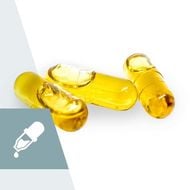
What You Need To Know About Ashwagandha
Ashwagandha has remained a staple in Ayurvedic tradition for thousands of years. Claimed to exhibit a whole range of benefits, here we look at the available research to see what it has to say about the root of this evergreen shrub.
Ashwagandha root has been used in traditional holistic practices for thousands of years. Also known as Indian ginseng or winter cherry, this little shrub belonging to the nightshade family is wildly popular!
More recently, it has found its way from East to West, gaining popularity as a dietary accompaniment. Here, we look into the potential effects of ashwagandha root extract, and the different ways it can be taken.
Origins of ashwagandha
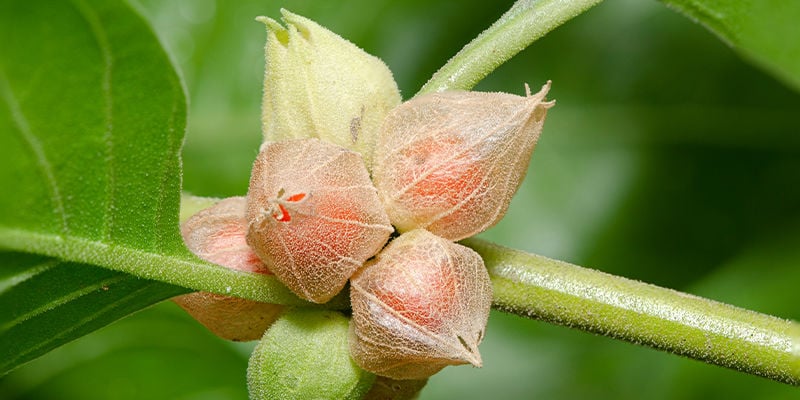
The ashwagandha plant grows in the arid regions of Asia and Africa, and has been used by indigenous Indian communities for generations. In Indian tradition, ashwagandha is used in what is known as Ayurveda. Ayurveda is a diverse and ancient medical practice, which is still widely used in Northern India and Nepal today. In fact, the name “ashwagandha” comes from Sanskrit, and means “smell of the horse”.
In its totality, Ayurveda encompasses many aspects, including yoga, surgery, meditation, and diet, to name but a few. In its popular Western iterations, the focus tends to revolve around Ayurveda's dietary elements. An Ayurvedic diet involves more than just eating healthy foods, but foods believed to have holistic value.
Due to the breadth of Ayurveda, it is impossible to make overarching claims about the entire practice, at least in comparison to modern medicine in the West. But we can zoom in on certain aspects, and have a closer look in the context of ashwagandha.
How ashwagandha works
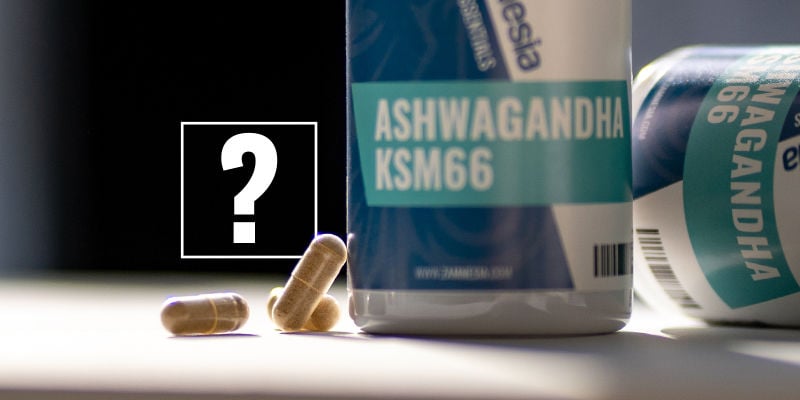
Ashwagandha is packed with numerous compounds that may be able to interact with the body. In terms of alkaloids, it contains isopelletierine, anaferine, cuscohygrine, and anahygrine. It also contains steroidal lactones—composed of withanolides and withaferins—and saponins.
Withanolides, for example, form a group of around 300 naturally occurring steroids, mostly found within the nightshade family, of which ashwagandha is a member.
Alkaloids encompass an incredibly broad range of compounds, defined as having at least one nitrogen atom. Morphine was the first alkaloid to be isolated, and certainly goes a long way to demonstrate the power that this class of compounds can exhibit. However, this does not mean that all alkaloids are able to interact with the body in a meaningful way.
Much of what is claimed about ashwagandha is based on anecdotal evidence or small-scale studies. Unlike with poppies, we are a long way from confidently making claims about how the various compounds in this plant affect people.
What are the potential benefits of ashwagandha?
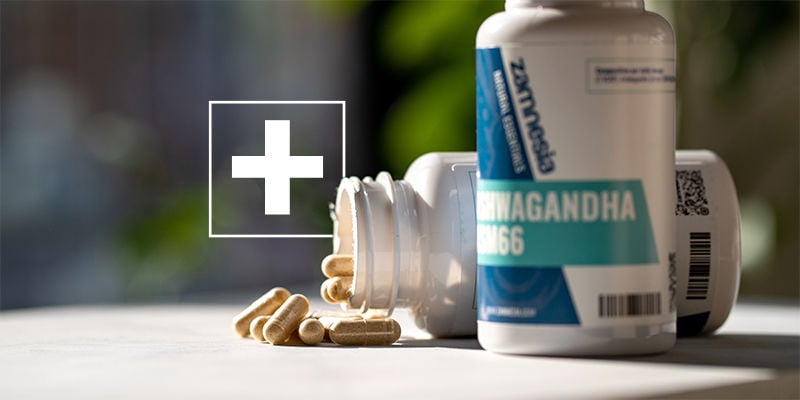
From ancient practice to modern usage, ashwagandha has retained its popularity. Compared to other, similar holistic herbs, there is a fair amount of research surrounding ashwagandha and its range of possible effects. Below we look into some of the most compelling studies, and assess what ashwagandha may, or may not, be helpful for.
Tension
Many people take ashwagandha due to its purported impact on tension. In one study, participants were instructed to take between 250mg and 600mg of ashwagandha a day, while researchers observed if the herb had any impact on stress levels, measured with the PSS baseline (Salve et al. 2019).
Another, similar study observed that ashwagandha seemed to affect the hypothalamus-pituitary-adrenal axis and cortisol levels, two major players in stress (Lopresti, 2019). This study took place over 60 days and involved 60 participants. It was randomised and double-blind, to try and mitigate the impact of bias.
Sleep
Studies have also observed the effects of ashwagandha extract on sleep quality. One piece of research, which took place over 12 weeks, observed changes in sleep quality among participants who took over 600mg of ashwagandha extract a day, measured by the WHOQOL-BREF questionnaire (Kelgane et al. 2020).
Testosterone and fertility
Interestingly, ashwagandha is being put to the test to determine its effect on both testosterone level and sperm count.
In a 2019 study, overweight men between the ages of 40 and 70 were given ashwagandha extract over the course of eight weeks. Researchers observed a significant change in both levels of DHEA-S and testosterone (Lopresti, 2019).
A review of four studies observed that sperm count, motility, and concentration changed in both healthy men and those who had a low sperm count prior to the research (Durg, Shivaram and Bavage, 2018).
Blood sugar
Research has begun to examine the impact of ashwagandha on blood sugar and insulin levels. A review of 24 studies, of which five were clinical studies of people with diabetes, noted ashwagandha’s potential effects on blood sugar, haemoglobin A1c (HbA1c), insulin, blood lipids, and oxidative stress markers (Durg, Bavage and Shivaram, 2020).
Though not proven, the compound withanolide A has been implicated as potentially being responsible for the above findings (Gorelick et al. 2015).
Cognitive function
There is also evidence that ashwagandha may affect cognitive function, both in healthy individuals and those already experiencing certain cognitive dysfunctions.
One review of five clinical studies observed a significant effect on executive function, reaction time, attention, and performance in participants who had taken ashwagandha (Ng, 2020). This review focused on those who already suffered cognitive impairment as a consequence of diseases such as Alzheimer’s.
Another study found similar results in healthy individuals. This study involved 50 individuals over eight weeks, each taking 600mg of ashwagandha extract a day. Similar to the above study, researchers noted a significant effect on cognitive function compared to the placebo group (Choudhary, Bhattacharyya and Bose, 2017).
How do you use ashwagandha?
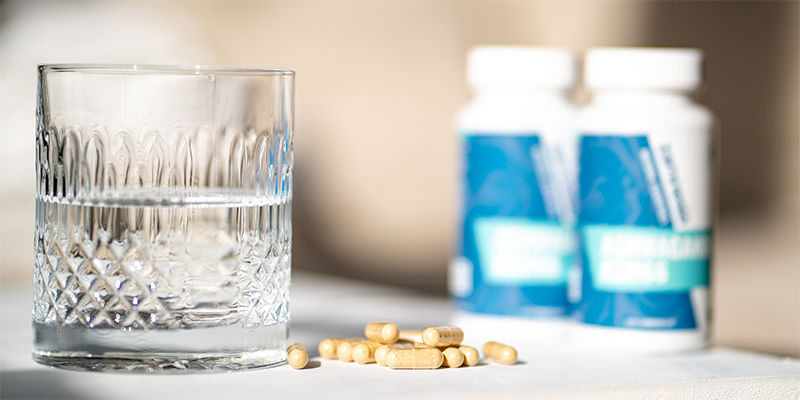
Traditionally, the ashwagandha root is dried, pulverised, and taken as a powder, often in tea. However, there are several ways to take it these days.
If you like to stick with tradition, then buy the root, or root powder, and see what you can do. Mix it with tea, infuse it with chocolate, or stir it into a meal. Ashwagandha powder offers versatility, and if you want to keep things natural, this is the option for you.
Otherwise, you could try ashwagandha liquid extract. Highly convenient, extracts can be dropped into a cup of tea or taken directly, requiring almost no effort. It is, however, worth finding a good-quality extract that contains all or most of the compounds from the root. There is no single compound that has been identified as bestowing ashwagandha its effects, and indeed it’s likely that the impact stems from many compounds working together.
Finally, you could also try ashwagandha capsules. Similar to the liquid extract, these are easy to take and highly convenient. You must once again ensure that you source a quality product, as a poor extraction process could remove most of what ashwagandha has to offer, rendering the venture futile!
Healthshop
Supplements for every need. From sleep and brain to energy, mushrooms, and more to support a healthy lifestyle.
Are there any side effects of using ashwagandha?

Ashwagandha seems to cause very few side effects. In fact, at low to medium doses, almost no side effects have been observed.
At higher doses, people may experience some of the following side effects:
- Diarrhoea
- Nausea
- Vomiting
As with most dietary substances, it’s worth starting low and slow with ashwagandha, observing how your body gets on with it before increasing your daily dosage.
Ashwagandha: Is it safe?
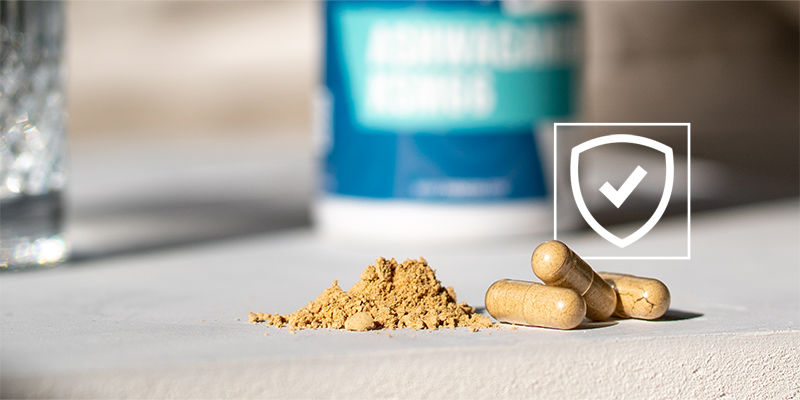
Withania somnifera, or Indian ginseng, appears safe and generally well-tolerated. So from that point of view, you shouldn’t run into any trouble if you choose to try it.
Whether it has anything to offer you as an individual can only be determined by you. As the studies above show, it appears that ashwagandha displays some promise in certain areas. However, much more research is needed to ascertain the scope of its potential effects, and which compounds are responsible for such effects.
If you fancy it, head over to the Zamnesia Smartshop and have a browse of our supplements category—there’s plenty there to boost your day!
- Choudhary, D., Bhattacharyya, S., & Bose, S. (2017). Efficacy and Safety of Ashwagandha (Withania somnifera (L.) Dunal) Root Extract in Improving Memory and Cognitive Functions. Journal of dietary supplements, 14(6), 599–612. - https://www.tandfonline.com
- Durg, S., Bavage, S., & Shivaram, S. B. (2020). Withania somnifera (Indian ginseng) in diabetes mellitus: A systematic review and meta-analysis of scientific evidence from experimental research to clinical application. Phytotherapy research : PTR, 34(5), 1041–1059. - https://onlinelibrary.wiley.com
- Lopresti, A. L., Drummond, P. D., & Smith, S. J. (2019). A Randomized, Double-Blind, Placebo-Controlled, Crossover Study Examining the Hormonal and Vitality Effects of Ashwagandha ( Withania somnifera) in Aging, Overweight Males. American journal of men's health, 13(2), 1557988319835985. - https://journals.sagepub.com
- Ng, Q. X., Loke, W., Foo, N. X., Tan, W. J., Chan, H. W., Lim, D. Y., & Yeo, W. S. (2020). A systematic review of the clinical use of Withania somnifera (Ashwagandha) to ameliorate cognitive dysfunction. Phytotherapy research : PTR, 34(3), 583–590. - https://onlinelibrary.wiley.com
- Durg S, Shivaram SB, & Bavage S. (11/15/2018). Withania somnifera (Indian ginseng) in male infertility: An evidence-based systematic review and meta-analysis - https://pubmed.ncbi.nlm.nih.gov
- Gorelick J, Rosenberg R, Smotrich A, Hanuš L, & Bernstein N. (2015 Aug). Gorelick J, Rosenberg R, Smotrich A, Hanuš L, Bernstein N. Hypoglycemic activity of withanolides and elicitated Withania somnifera. Phytochemistry. 2015 Aug;116:283-289. doi: 10.1016/j.phytochem.2015.02.029. Epub 2015 Mar 18. PMID: 25796090. - https://pubmed.ncbi.nlm.nih.gov
- Jaysing Salve, Sucheta Pate, Khokan Debnath, & Deepak Langade. (2019/12/25). Adaptogenic and Anxiolytic Effects of Ashwagandha Root Extract in Healthy Adults: A Double-blind, Randomized, Placebo-controlled Clinical Study - https://www.cureus.com
- Lopresti, A. L., Smith, S. J., Malvi, H., & Kodgule, R. (2019). An investigation into the stress-relieving and pharmacological actions of an ashwagandha (Withania somnifera) extract: A randomized, double-blind, placebo-controlled study. Medicine, 98(37), e17186. - https://journals.lww.com
- N Singh, M Bhalla, P de Jager, & M Gilca. (2011). Singh, N., Bhalla, M., de Jager, P., & Gilca, M. (2011). An overview on ashwagandha: a Rasayana (rejuvenator) of Ayurveda. African journal of traditional, complementary, and alternative medicines : AJTCAM, 8(5 Suppl), 208–213. - https://doi.org
- Sunil B. Kelgane, Jaysing Salve, Prasanthi Sampara, & Khokan Debnath. (2020/02/23). Efficacy and Tolerability of Ashwagandha Root Extract in the Elderly for Improvement of General Well-being and Sleep: A Prospective, Randomized, Double-blind, Placebo-controlled Study - https://www.cureus.com
-
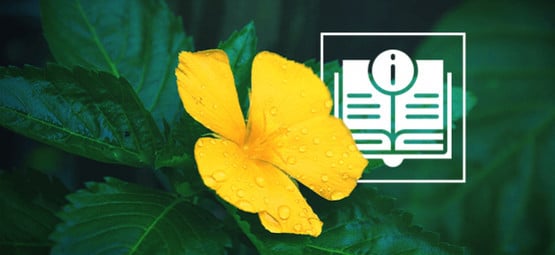 5 min
3 June 2025
How to use damiana: Everything you need to know
What is damiana, and why are more people talking about it? Discover how this aromatic herb fits into traditional wellness systems and modern self-care. From preparation methods to safety tips, this...
5 min
3 June 2025
How to use damiana: Everything you need to know
What is damiana, and why are more people talking about it? Discover how this aromatic herb fits into traditional wellness systems and modern self-care. From preparation methods to safety tips, this...
-
 4 min
3 November 2022
5-HTP: Everything You Need To Know
As a supplement, the use of 5-HTP has increased dramatically over the years. While the body naturally produces this chemical, many are looking to increase systemic levels in hopes of experiencing...
4 min
3 November 2022
5-HTP: Everything You Need To Know
As a supplement, the use of 5-HTP has increased dramatically over the years. While the body naturally produces this chemical, many are looking to increase systemic levels in hopes of experiencing...
-
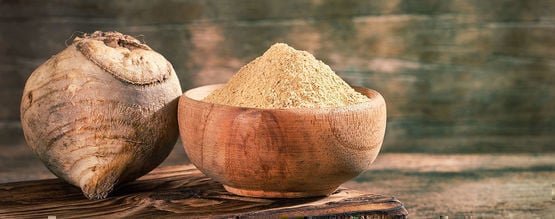 4 min
29 September 2022
Everything You Need To Know About Maca Root
Heard about maca's unique potential to improve sex drive, energy level, and cognitive function? In this article, we take an in-depth look at Peruvian maca root, its rich cultural history, potential...
4 min
29 September 2022
Everything You Need To Know About Maca Root
Heard about maca's unique potential to improve sex drive, energy level, and cognitive function? In this article, we take an in-depth look at Peruvian maca root, its rich cultural history, potential...
-
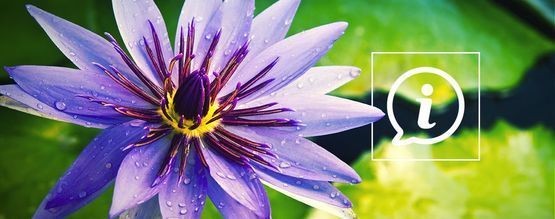 8 min
24 November 2020
What Is Blue Lotus?
The blue lotus also known as blue water lily was widely popular in ancient Egypt. Learn everything about the blue lotus and find out about its uses and effects.
8 min
24 November 2020
What Is Blue Lotus?
The blue lotus also known as blue water lily was widely popular in ancient Egypt. Learn everything about the blue lotus and find out about its uses and effects.





 United States
United States

